Hello everyone! Today we have come up with simple ‘Floating Egg Science Experiment with a twist’ that can be done within 5-10 minutes.
My kids call it as a pre-breakfast activity. This is an easy and funny experiment to teach density for kids.
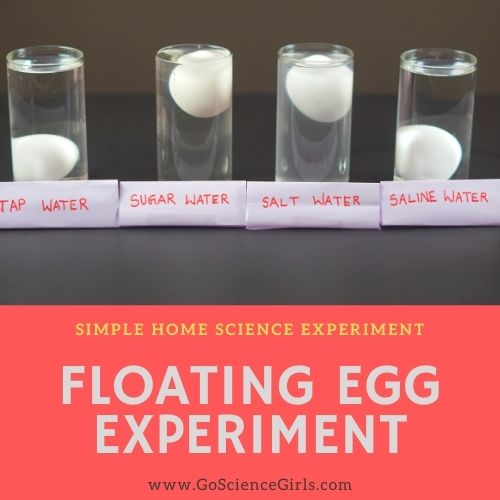
We know that some things float in the water and some others not. Do u know why the things sink in the water!? Let us learn something about floating science using eggs.
Floating Egg Experiment
This activity is a cool way to learn the concept – density! We are going to perform the experiment with four different liquids to understand the science behind floating objects in water.
We commonly see that eggs sink when we put in the water. What is the reason behind this!? Does egg sinks the same way when dropped in other liquids? We will perform a simple activity to learn the science behind it.
Try our 20+ Egg Science Experiments
Materials Required for the Activity
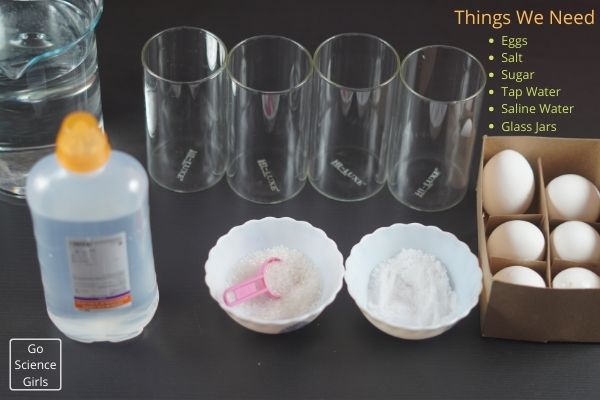
- Table salt
- Sugar
- Saline water (You can find saline water in any of the local pharmacies)
- Four glass jars (Either you take glass jars or beakers, make sure they are tall and wide enough to drop an egg)
- Tablespoon
- Tap water
- Four Raw Eggs (Ensure the eggs are not broken or given any crack to avoid the unnecessary mess with the leaky eggs during experiment)
Procedure
- Fill one tall drinking glass or glass beaker about ¾ full of water.
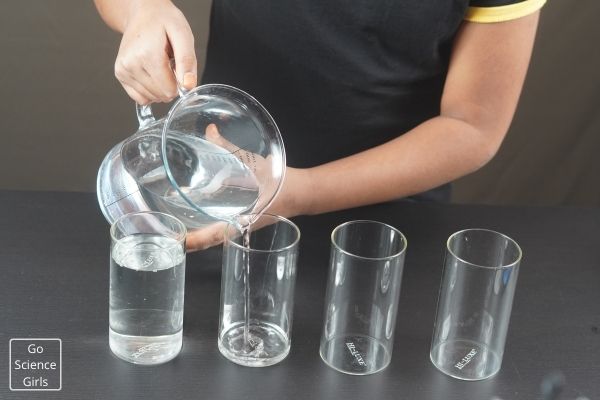
- In the same way, fill the other glass with salt water. To prepare salt water, put 1-2 cups of salt in 500ml of water. Stir it with the spoon. That’s it. You are done with making salt water.
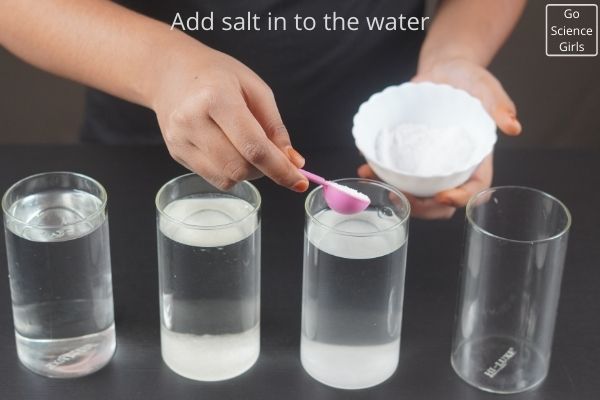
- Now it is second drinking glass turn! Fill it with sugar water. Prepare the sugar water same like how we made salt water in previous step.
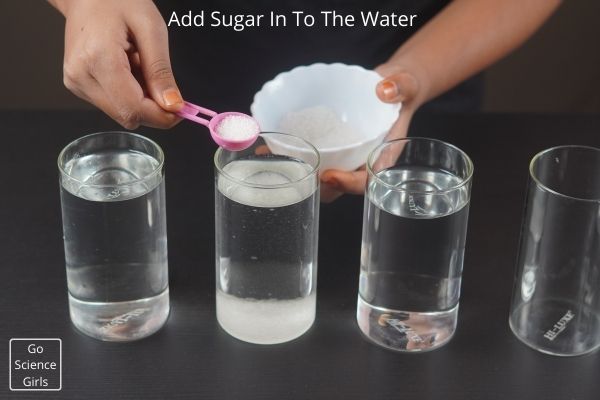
- Saline water! Yes, we are using saline water as well to observe the floating science with eggs. Fill the fourth glass beaker with saline water.
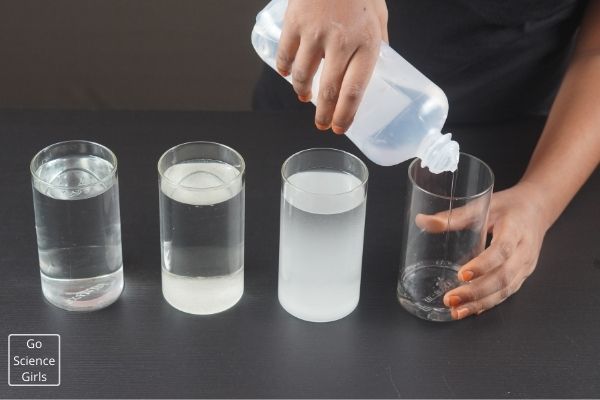
- Finally, we have arrived to the kid’s favourite step i.e. dropping egg into the tall drinking glasses.
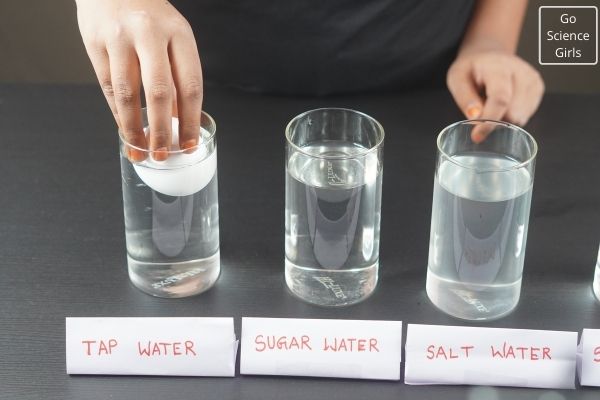
My younger daughter is eagerly waiting for my instructions to drop the egg in the liquids. When I said so, she carefully dropped the raw eggs into the four glasses filled with four different liquids each.
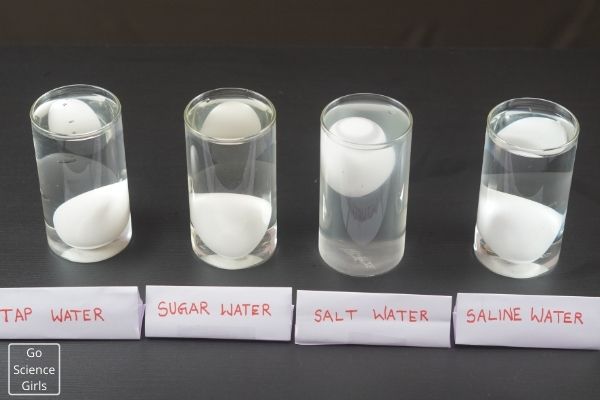
Ask your kids to observe the results that in which liquid the dropped eggs are floating or sinking.
On the initial test, we only had egg floating in the salt water. The sugar water was not dense enough to make the egg float. So we tried to add more sugar to the already prepared sugar solution.
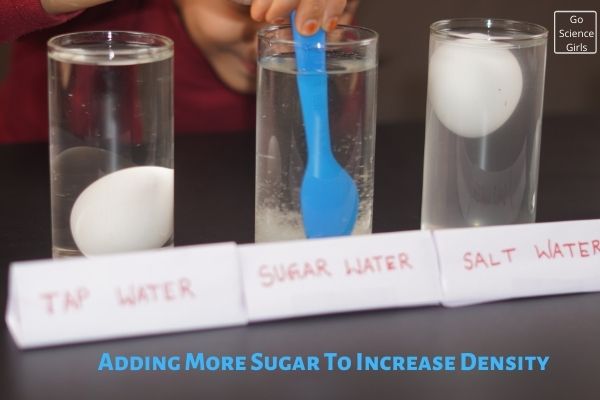
Finally we made the egg float in the sugar water as the water is now more dense due to the added sugar.
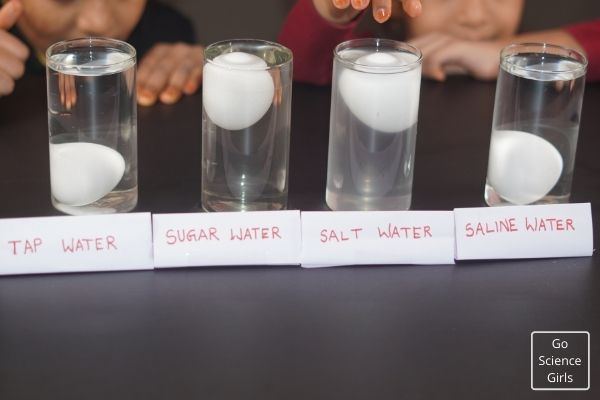
How Does the Floating Egg Science Experiment Work?
Let us discuss the results of our experiment. The raw egg dropped in the tap water sinks immediately as soon as it is dropped. On the other hand the egg in the salt water floats.
We observe the same results with the sugar water as well. The raw egg floats nicely in sugar water as well.
How about our egg in the saline water? The egg didn’t float surprisingly in the saline water.
Now let us discuss on what made the eggs in salt & sugar water float and why the egg in normal tap water and saline water sink!?
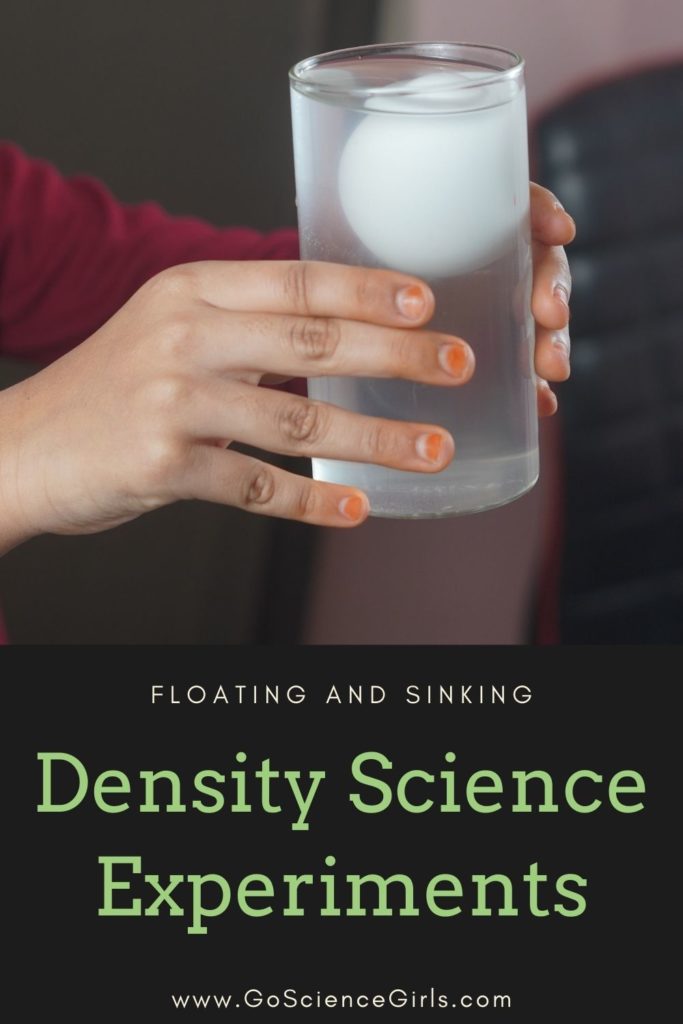
Science behind floating egg
The egg in the glass of regular tap water sinks to the bottom because the density of egg is more compared to density of water.
Why the egg in salt water floats? When the salt is added to the water, it increases the density of the water and hence the density of the egg slowly becomes lesser than the salt water.
You are dissolving the more the salt into the water means you are increasing the density of water. The denser the liquid is the easier for the object in the water to float.
The same formula applies to the sugar water. The density of sugar water is more than the density of egg.
On the other hand, saline water is made of salt and water. However, the density of the saline water that we used seems to be lower than than egg. Thus it floated in the sugar water and sinked in the saline water.
Density is a concept dealing with how closely a substance is packed to be together.
We will compare this concept with our daily life things. For example: consider we have two bowls one is filled with salad and the other is with rice.
Both are of taken in same quantity but we feel the salad bowl is lighter than the rice bowl because the ingredients are packed tightly in the rice bowl than the salad of lettuce and vegetables which are very light in nature.
In the same way, the molecules in the salt, sugar, and saline water are packed more closely and makes the salt, sugar, and saline water denser than the water where the molecules are packed lighter thus making it less denser.
Even the egg has some density but less than the salt water and hence the egg floats in salt, sugar, and saline water.
So, when you go to swimming pool or beach or ocean, observe that you will float easily and lightly compared to salt water. The denser the liquid, the easier you will float! Amazing right!?
Experiment Extensions
Try different liquids and different substances to dissolve in the water in order to make an egg float.
Try these Density Science Experiments :
Oil, Food Color & Water – Fireworks
Subscribe to our newsletter to be the first one to know our science experiments as soon as we publish them.
